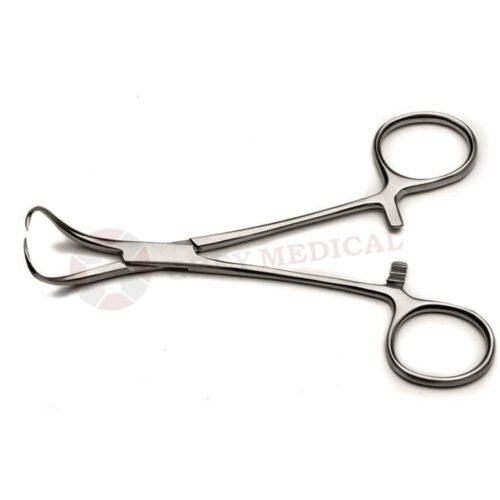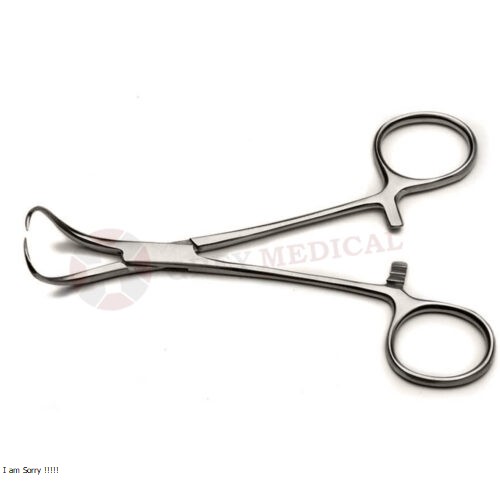Backhaus towel forceps, often simply referred to as towel clamps, are a critical tool in the surgical field. Designed to hold drapes and towels in place during surgical procedures, these instruments ensure a sterile environment and contribute significantly to the overall success of surgeries. Their unique design and functionality make them indispensable in various medical settings. This blog explores the features, uses, and benefits of Backhaus towel forceps in surgical practices.

Design and Features of Backhaus Towel Forceps
Backhaus towel forceps are characterized by their distinctive design, which includes curved jaws and a ratchet locking mechanism. The curved jaws feature sharp, pointed ends that grip surgical towels and drapes securely without slipping. The ratchet mechanism allows for easy locking and unlocking, providing surgeons and assistants with a reliable way to maintain tension on the drapes throughout the procedure.
1. Material Composition
These forceps are typically made from high-quality stainless steel, which ensures durability, resistance to corrosion, and ease of sterilization. This material choice is crucial in a surgical environment, where hygiene and reliability are paramount.
2. Sizes and Variations
Backhaus towel forceps are available in various sizes, ranging from small to large, allowing for versatility in different surgical situations. Surgeons can select the appropriate size based on the specific requirements of the procedure, ensuring optimal performance and safety.
Importance of Backhaus Towel Forceps in Surgery
The primary function of Backhaus towel forceps is to secure surgical drapes and towels, creating a sterile field and preventing contamination. The use of these forceps significantly enhances surgical efficiency and minimizes the risk of complications. Some key reasons why Backhaus towel forceps are essential include:
1. Maintaining Sterility
By securing drapes and towels in place, Backhaus towel forceps help maintain a sterile environment, reducing the risk of infections and complications during surgery. This is crucial for patient safety and recovery.
2. Facilitating Surgical Access
In many surgical procedures, the need for access to the surgical site is paramount. By effectively holding drapes and towels, these forceps allow surgeons and surgical assistants to focus on the procedure without worrying about loose drapes obstructing their view or access.
3. Versatility Across Procedures
Backhaus towel forceps are versatile instruments used across a wide range of surgical disciplines, including general surgery, orthopedics, gynecology, and more. Their adaptability makes them a standard in operating rooms worldwide.
Proper Usage and Handling of Backhaus Towel Forceps
To ensure the effectiveness and longevity of Backhaus towel forceps, proper usage and handling are essential. Surgeons and surgical assistants should follow these guidelines:
- Sterilization: Always ensure that the forceps are sterilized before use. Follow standard sterilization protocols to maintain a sterile environment.
- Gentle Handling: When using Backhaus towel forceps, apply gentle pressure to avoid damaging the towels or drapes. The sharp tips are designed for secure gripping without excessive force.
- Locking Mechanism: Familiarize yourself with the locking mechanism to ensure that the forceps remain securely in place throughout the procedure. Proper locking prevents accidental release, which could compromise the sterile field.
Conclusion
Backhaus towel forceps play a vital role in the surgical environment, contributing to the success of procedures by maintaining sterility and providing reliable support for drapes and towels. Their durable design, ease of use, and versatility across various surgical disciplines make them an essential tool in every operating room. Understanding the features and proper handling of these instruments is crucial for surgical teams, ensuring patient safety and optimal surgical outcomes.





Comments